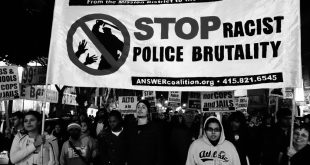it is not the fact that science occurs that gives the world a structure such that it can be known by men. Rather, it is the fact that the world has such a structure that makes science, whether or not it actually occurs, possible. That is to say, it is not the character of science that imposes a determinate pattern or order on the world; but the order of the world that, under certain determinate conditions, makes possible the cluster of activities we call ‘science’. It does...
Read More »Challenging causal models — the low birth weight paradox
Challenging causal models — the low birth weight paradox .[embedded content] Lesson learned? Beware of collider bias and ‘censored’ data!
Read More »Is causality only in the mind?
Is causality only in the mind? I make two main points that are firmly anchored in the econometric tradition. The first is that causality is a property of a model of hypotheticals. A fully articulated model of the phenomena being studied precisely defines hypothetical or counterfactual states. A definition of causality drops out of a fully articulated model as an automatic by-product. A model is a set of possible counterfactual worlds constructed under some...
Read More »Science manufacturing ignorance
.[embedded content]
Read More »Racial bias in the use of force by police
Racial bias in the use of force by police Our analysis indicates that existing empirical work in this area is producing a misleading portrait of evidence as to the severity of racial bias in police behavior. Replicating and extending the study of police behavior in New York in Fryer (2019), we show that the consequences of ignoring the selective process that generates police data are severe, leading analysts to dramatically underestimate or conceal...
Read More »From association to causation
From association to causation .[embedded content]
Read More »Evidence-based policy
‘Ideally controlled experiments’ tell us with certainty what causes what effects — but only given the right closures. Making appropriate extrapolations from (ideal, accidental, natural or quasi) experiments to different settings, populations or target systems, is not easy. “It works there” is no evidence for “it will work here”. Causes deduced in an experimental setting still have to show that they come with a transportability warrant to the target population/system. The...
Read More »The role of manipulation and intervention in theories of causality
The role of manipulation and intervention in theories of causality As X’s effect on some other variable in the system S depends on therebeing a possible intervention on X, and the possibility of an intervention inturn depends on the modularity of S, it is a necessary condition for something to be a cause that the system in which it is a cause is modular with respect to that factor. The requirement that all systems are modular with respect to their causes...
Read More »The RCT controversy
In Social Science and Medicine (December 2017), Angus Deaton & Nancy Cartwright argue that RCTs do not have any warranted special status. They are, simply, far from being the ‘gold standard’ they are usually portrayed as: Randomized Controlled Trials (RCTs) are increasingly popular in the social sciences, not only in medicine. We argue that the lay public, and sometimes researchers, put too much trust in RCTs over other methods of in- vestigation. Contrary to frequent...
Read More »What kind of evidence do RCTs provide?
What kind of evidence do RCTs provide? Perhaps it is supposed that the assumptions for an RCT are generally more often met (or meetable) than those for other methods. What justifies that? Especially given that the easiest assumption to feel secure about for RCTs—that the assignment is done “randomly”—is far from enough to support orthogonality, which is itself only one among the assumptions that need support. I sometimes hear, “Only the RCT can control for...
Read More » Heterodox
Heterodox






